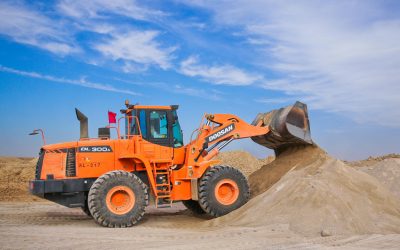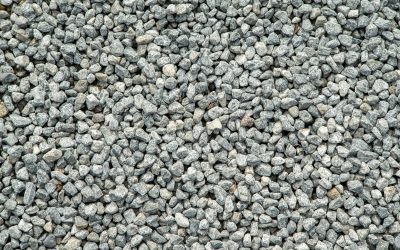As the need to maintain water resources continues to grow, so do the challenges of sustainable water management in aggregate mining operations. Irregularity between mining operations causes contention in dewatering requirements, particularly in the aggregate washing and dewatering processes.
However, there are several solutions to help improve water conservation – some options even have the potential to increase profits and productivity.
Why Is Water Management a Problem?
Increasing water conservation is not only a regulatory issue: water shortages in mining areas can cause a stop in production which ultimately stops profits.
In addition, local communities that may be under conservation notices add additional pressure to mining operations to reduce water consumption.
Regardless, the issue is clear: water must be conserved for an operation to remain sustainable and efficient.
The Challenge Facing Aggregate Operations
Washing aggregate and sand, whether natural or manufactured, traditionally uses a significant amount of water. Measuring and regulating mining water usage has also been inconsistent.
The challenge is shifting to technologies and practices that create a more sustainable aggregate mining operation while continuing to meet global supply demands and quality specifications.
How To Identify Water Conservation Issues At Your Plant
To improve water conservation, mining operations must conduct a thorough water audit. An audit takes time and effort but will yield results. Part of the water audit should include a thorough equipment inspection.
The audit should include:
- Reviewing your operation’s water source. Is this source efficient? Are there better opportunities for sourcing?
- Inspecting equipment for efficient use of water. Is your equipment operating under ideal conditions? Is there water loss from leaks or poorly calibrated equipment?
- Identifying environmental impacts. Is wash water properly monitored for excess discharge? Are all local and federal regulations followed?
Auditing your operation’s water usage and waste is only the first step in the process. Once issues have been identified, steps can be taken to improve your plant’s water management strategy.
What Can Be Done to Improve Sustainability in Water Management
There are several ways to improve an operation’s water management. To see the most benefit, both processes and technology must be addressed.
Minimize Reliance on Settling Ponds
Minimizing reliance on settling ponds is another way to decrease the impact on water supply. Settling ponds have been beneficial for some operations but will not continue to be as unregulated and useful over time. Even now, settling ponds can contaminate local water systems, nearby equipment, and even cause adverse effects for workers. Looking for alternate solutions is not just smart planning, it is the future of aggregate mining.
Reuse Water
Implementing water recycling technologies allows mining operations to treat and reuse water, reducing freshwater consumption and minimizing wastewater discharge. Advanced filtration systems and sedimentation tanks enable the recovery of water for various operational needs.
Upgrading Equipment To Meet Modern Challenges
The latest advances in equipment are evident in their water conservation efforts. The right equipment can make water management more effective and relegate settling ponds to a thing of the past.
Older machines use more water in the washing processes, while newer machines are designed with water conservation in mind. New machines boast simple designs with easy maintenance plans but with advanced capabilities. New machines often consume less power but also operate at higher capacity and produce a drier product, increasing productivity and profit.
AEI’s Aggregate Screening Solutions
Aggregates Equipment, Inc. offers two innovative solutions for improving water sustainability in aggregate mining operations: The Ortner and BIVI-TEC.
The Ortner is an aggregate dewatering and classifying machine designed with water conservation in mind. A true advancement in machinery, the driver and vibrating mechanisms are mounted under the pan preventing contamination with the water and processed materials. The Ortner uses less water, about a third of conventional dewatering equipment, to produce a cleaner product that meets specifications uniformly.
Meanwhile, the BIVI-TEC allows for efficient dry processing that eliminates the need for water. By using a dual-vibratory screening process, the BIVI-TEC eliminates clogging and blinding when processing manufactured sands, chips, and ag lime.
By upgrading equipment, aggregate mining operations can also up their stakes in water conservation. New equipment, especially that which is more efficient in design and production, is an investment that will continue to pay off over the long term rather than settling ponds and aging machinery. Contact AEI today to learn more about the benefits of The Ortner.


